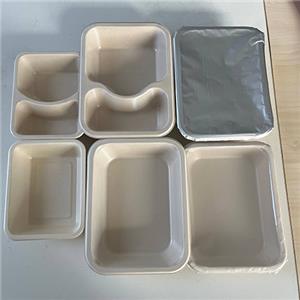Pune's Plastic Paradox: Ban in Place, But Bags Flourish Amid Environmental Crisis
Pune, June 5, 2024 (World Environment Day) – Seven years after Maharashtra's landmark ban on single-use plastics, Pune and Pimpri Chinchwad remain awash in the very materials the prohibition targeted. Despite repeated enforcement drives by civic authorities, thin polythene bags remain ubiquitous, carried by vendors and shoppers across every corner of the city. Plastic now constitutes a staggering 30-32% of Pune's daily 2,000-tonne waste stream, highlighting a persistent environmental failure on World Environment Day, whose 2024 theme starkly commands: 'End Plastic Pollution'.
A Ban Losing Steam
The 2018 ban saw initial enthusiasm, with stringent actions against violators. However, enforcement has waned significantly over time. Recent efforts, including a Pune Municipal Corporation (PMC) crackdown on manufacturers in April 2024 following a Maharashtra Pollution Control Board (MPCB) directive for heightened vigilance, appear to yield minimal impact on the ground.
"The cycle is predictable: a burst of enforcement, then it fades, and the plastic returns," observed Anil Gokarn, founder of zero-waste solutions firm ProEarth. Gokarn pinpointed the core issue: "Bans fail without accessible, affordable alternatives. Plastic is woven into daily life. Simply demanding citizens stop using it is ineffective. We need crackdowns plus viable substitutes and incentives for manufacturers and consumers to shift. Authorities must treat this as a critical mission, not a box-ticking exercise."
Mindset Shift & Awareness Gap: The First Hurdle
The struggle extends beyond enforcement. Vegetable sellers, like one in Aundh, voice a common dilemma: "We stop giving bags during crackdowns, but customers demand them. Refusing means lost business. Even cloth bag users often request plastic for segregating vegetables. The financial pinch during enforcement is real. What's the solution?"
Experts argue this reflects a critical lack of understanding. "People grasp plastic is 'bad', but the severity of its long-term consequences is lost," explained Dr. Ashish Polkade of Besteco Solutions. "We need deep-rooted awareness, starting in schools – teaching children the how and why of plastic's harm, empowering them to influence families. Changing mindsets is the essential first step. This is about our own future, not just future generations."
Polkade advocates fostering a "guilt-culture" over a "shame-culture" – internalizing the responsibility for change. Citizens aware of the crisis must actively educate their circles.
The Global & Local Plastic Tide
The urgency is undeniable. UN data projects global plastic consumption surpassed 500 million tonnes in 2024, with 400 million tonnes becoming waste. Without intervention, this could triple to 1.2 billion tonnes by 2060. India contributes significantly, generating an estimated 9.3 million tonnes of plastic waste annually, with 3.5 million tonnes mismanaged and leaking into the environment. Maharashtra faces a particularly acute problem, with plastics making up a shocking 81% of beach debris – far above the national average of 14%.
Plastic's harm is pervasive: from greenhouse gas emissions during fossil fuel-based production, to choking drains causing floods, poisoning marine life, and ultimately entering the human food chain via microplastics. UNEP reports the equivalent of 2,000 garbage trucks of plastic are dumped into global waters daily.
Pathways to Responsible Disposal
For conscientious citizens, responsible disposal options exist:
Rudra Environmental Solutions: Converts plastics into fuel.
reCharkha & EcoKaari: Transform single-use plastic into handcrafted goods (bags, home décor), supporting artisans.
Poornam EcoVision: Channels waste to verified recyclers adhering to eco-standards.
Janwani (MCCIA): Aggregates household waste for proper disposal and runs awareness campaigns.
Mangesh Kshirsagar of Janwani emphasizes citizen action: "Start at home. Washing, drying, and storing plastic properly before collection makes it easier to recycle multiple times before becoming waste. Thinner bags (<50 microns) are the worst, taking centuries to decompose and fragmenting into microplastics."
Official Stance: Enforcement & Vigilance
Authorities maintain focus:
PMC (Sandip Kadam): "We have dedicated ward squads targeting vendors. Action is regular, but scale is a challenge. We aim to eliminate single-use plastic entirely."
PCMC (Sachin Pawar): "Joint environment-health squads are active since May 20th, alongside awareness drives. Violators face severe penalties."
MPCB (Manchak Jadhav): "No legal single-use plants operate locally due to the ban. Most plastic comes from bordering states. We collaborate with civic bodies to intercept this flow and direct action against users."
The Road Ahead
As World Environment Day underscores the global plastic crisis, Pune's struggle exemplifies the complex challenge. Effective solutions demand more than sporadic enforcement: they require accessible alternatives, robust incentives, systemic waste management improvements (especially recycling infrastructure to counter India's 77% open dumping rate), and a fundamental shift in public consciousness. The plastic tide can only be turned through sustained, multi-pronged action involving government, industry, and every citizen.




